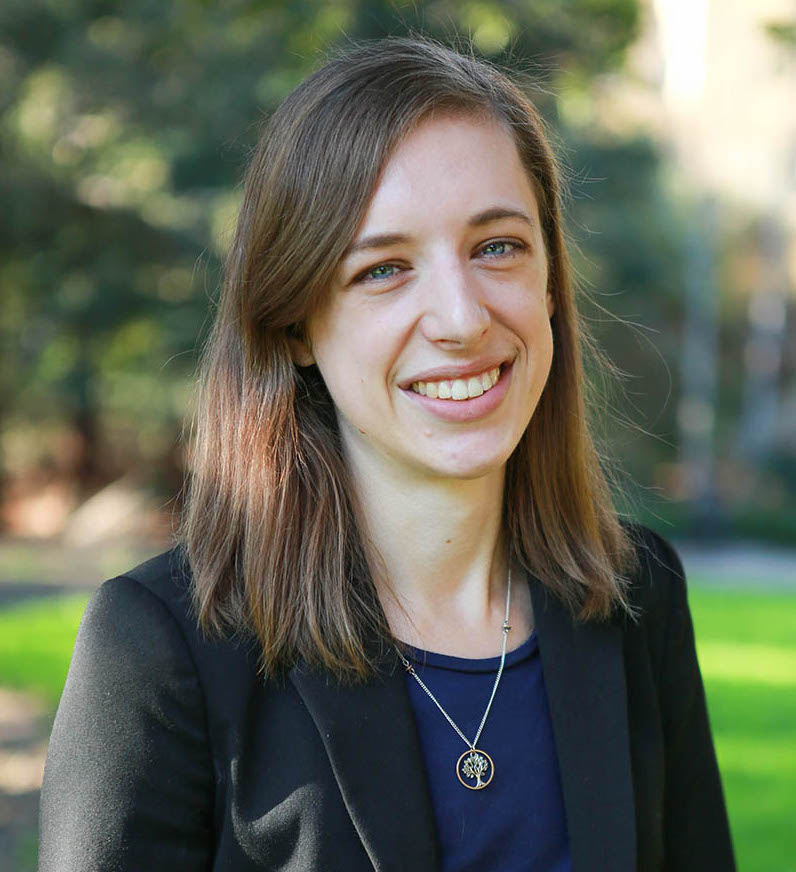This UC Berkeley symposium is the result of a collaborative effort of individuals and organizations who are committed to improving understandings of the potential for MAR. Together, the Project Team and its Technical Advisory Committee have in depth knowledge of the technical, legal, economic and social aspects of MAR.
Project Team
Michael Kiparsky (UC Berkeley)
 Michael Kiparsky is the founding Director of the Wheeler Water Institute within the Center for Law, Energy & the Environment at the UC Berkeley School of Law. Under his leadership, the Institute has grown into a widely recognized voice on a range of California water issues. Dr. Kiparsky has worked on technical and policy aspects of water resources management for 15 years, and his primary interest lies at their intersection. He has published academic articles and technical reports on a range of topics including governance and policy of complex water systems, climate change impacts and adaptation, water innovation, and science for decision-making. His work has appeared in media outlets including TheSacramento Bee, the San Francisco Chronicle and the Los Angeles Times, and through his engagement activities is regularly used by state and local decision-makers. He was previously on the faculty at the University of Idaho, and has experience in consulting, non-profit, and agency settings. Dr. Kiparsky earned an A.B. in Biology from Brown University and a Ph.D. from U.C. Berkeley’s Energy and Resources Group, where he was an NSF Graduate Research Fellow, a Udall Scholar, a CALFED Science Scholar, and the first ACWA Steve Hall Water Law & Policy Scholar. He was recently named one of “Nine Experts to Watch on California Water Policy” by Water Deeply.
Michael Kiparsky is the founding Director of the Wheeler Water Institute within the Center for Law, Energy & the Environment at the UC Berkeley School of Law. Under his leadership, the Institute has grown into a widely recognized voice on a range of California water issues. Dr. Kiparsky has worked on technical and policy aspects of water resources management for 15 years, and his primary interest lies at their intersection. He has published academic articles and technical reports on a range of topics including governance and policy of complex water systems, climate change impacts and adaptation, water innovation, and science for decision-making. His work has appeared in media outlets including TheSacramento Bee, the San Francisco Chronicle and the Los Angeles Times, and through his engagement activities is regularly used by state and local decision-makers. He was previously on the faculty at the University of Idaho, and has experience in consulting, non-profit, and agency settings. Dr. Kiparsky earned an A.B. in Biology from Brown University and a Ph.D. from U.C. Berkeley’s Energy and Resources Group, where he was an NSF Graduate Research Fellow, a Udall Scholar, a CALFED Science Scholar, and the first ACWA Steve Hall Water Law & Policy Scholar. He was recently named one of “Nine Experts to Watch on California Water Policy” by Water Deeply.
Kathleen Miller (UC Berkeley)
 Kathleen (Katie) Miller is a Research Fellow with the Wheeler Water Institute at CLEE. Her research primarily focuses on innovative methods of groundwater recharge and the intersection of data and water rights.
Kathleen (Katie) Miller is a Research Fellow with the Wheeler Water Institute at CLEE. Her research primarily focuses on innovative methods of groundwater recharge and the intersection of data and water rights.
Prior to joining CLEE, Katie worked at the Nebraska Attorney General’s office, where she litigated several water rights cases up to the Nebraska Supreme Court and pursued environmental enforcement actions on behalf of the state Department of Environmental Quality. At Nebraska Law, Katie was a member of Nebraska’s National Moot Court team, a senior member of Moot Court Board, and was inducted as member of the Order of Barristers. Additionally, she clerked for the Environment and Natural Resources Division of the U.S. Department of Justice in Washington, D.C. Katie received her B.A. in Economics and Political Science from the University of Nebraska-Lincoln.
Anita Milman (UMass-Amherst)
 Anita Milman is an Associate Professor at UMass-Amherst. Dr. Milman researches environmental governance, with a focus on water resources in the context of global change. She is particularly interested in how adaptation to climate change in the water sector is influenced by a) institutional structures 2) the socio-political-cultural lenses used in interpreting information and c) the need to make decisions and act under uncertainty. Her research is itself a form of boundary work, and focuses on connecting those who produce knowledge with stakeholders, policy makers, and government agencies. Dr. Milman earned a M.E. in Civil and Environmental Engineering from Cornell University, and a Ph.D. from U.C. Berkeley’s Energy and Resources Group.
Anita Milman is an Associate Professor at UMass-Amherst. Dr. Milman researches environmental governance, with a focus on water resources in the context of global change. She is particularly interested in how adaptation to climate change in the water sector is influenced by a) institutional structures 2) the socio-political-cultural lenses used in interpreting information and c) the need to make decisions and act under uncertainty. Her research is itself a form of boundary work, and focuses on connecting those who produce knowledge with stakeholders, policy makers, and government agencies. Dr. Milman earned a M.E. in Civil and Environmental Engineering from Cornell University, and a Ph.D. from U.C. Berkeley’s Energy and Resources Group.
Technical Advisory Committee
Bill Blomquist is a Professor of Political Science and Adjunct Professor of Public and Environmental Affairs, at Indiana University Purdue University Indianapolis (IUPUI). He is also an affiliated faculty member of the Workshop in Political Theory and Policy Analysis, and the Center for Earth and Environmental Science. The focus of his teaching is American government and public policy.
His research interests concern governmental organization and public policies, with a specialization in the field of water institutions and water management. He is the author or co-author of several publications related to these topics, including the books Dividing the Waters (1992), Common Waters, Diverging Streams (2004), and Integrated River Basin Management through Decentralization (2006), and articles in Society and Natural Resources, Political Research Quarterly, Water Resources Research, and Natural Resources Journal, among others.
Helen Dahlke is an Associate Professor at the Department of Land, Air, and Water Resources at UC Davis. Dr. Dahlke’s research goal is to contribute to a better mechanistic understanding of hydrological processes and their links to climate and biogeochemical cycling. Her current research interests include surface water – groundwater interactions, water resources management, vadose zone transport processes, hydrologic response functions and applications of DNA nanotechnology in hydrology.
On-going projects include testing a new type of environmental tracer consisting of synthetic DNA strands encapsulated by polymer microspheres for flow path characterization in porous media and exploring the feasibility of using agricultural fields as recharge sites for groundwater banking.
Andrew Fisher is a Professor of Physical and Biological Sciences at UC Santa Cruz. Dr. Fisher’s research group explores water-rock interactions in many settings. In one set of ongoing studies, Fisher and his students and colleagues have investigated the mechanisms by which enormous fluxes of water move in and out (and through) the oceanic crust, using field observations, laboratory experiments, and computer modeling. Fisher’s research group is also exploring surface water-ground water interactions using heat and conservative and reactive solutes and nutrient isotopes as tracers. One recent project involved quantifying stream contributions to aquifer recharge and the dynamics and impacts of stream-aquifer flows on water quality in the nearby Pajaro Valley. New projects involve linking hydrology and nutrient cycling in constructed wetlands, nutrient dynamics within the San Joaquin River as part of a CALFED project, and evaluating the efficacy and influence on water quality of an aquifer storage and recovery project adjacent to a wetland.
Rita Maguire is a founding member of Maguire, Pearce & Storey, and is the former CEO of the Arizona Center for Public Policy and the former Director of the Arizona Department of Water Resources. Ms. Maguire has more than 26 years of experience in water, environmental and administrative law in Arizona. Her clients include municipal water providers, mining companies, international corporations with water and environmental interests, real estate investors, and the State of Arizona. She routinely provides advice to municipal, industrial and agricultural interests about public policy, legislative and regulatory rule-making developments. Ms. Maguire provides expert witness testimony on the acquisition, management and utilization of surface water and groundwater in Arizona and the Lower Colorado River Basin and has arbitrated a multi-million dollar water supply and pricing dispute in Southern California.
Brendan O’Rourke is the Vice President of Natural Resources at Nestlé Waters North America (NWNA). He oversees the sustainable management and protection of all of NWNA’s water resources, including the 47 spring sites used to produce the company’s seven regional spring water brands in the U.S. and Canada. In his nearly 22 years with Nestlé Waters, Brendan has also sited, started up and managed water bottling factories; been Purchasing Manager responsible for bottles, preforms and resin; and served as the Central Division Finance Manager.
Kathryn Sorensen is the director of Phoenix Water Services, overseeing one of the nation’s largest potable water utilities, which treats and reliably delivers high quality tap water to 1.5 million customers throughout approximately 540 square miles. Water Services also manages Phoenix’s sewer collection system, and treats wastewater for 2.5 million residents in the Valley of the Sun.
John Tracy is the current director of the Texas Water Resources Institute. As director, Dr. Tracy works to connect Texas A&M faculty and staff with a wide range of local, state, federal and private entities to develop and move forward initiatives that address pressing water resource issues facing Texas, the region, and the nation.